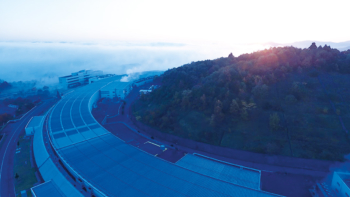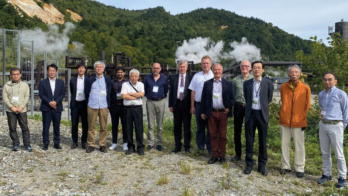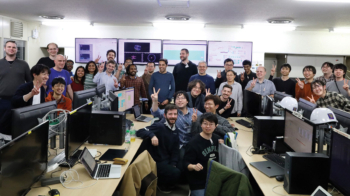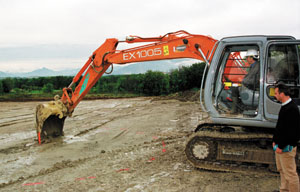
On 20 October, CERN director-general Luciano Maiani bravely took over the controls of an excavator for the groundbreaking of the CERN Neutrinos to Gran Sasso project. In this scheme, approved by the CERN Council in December 1999, a beam of high-energy neutrinos will be sent from CERN to detectors at the Italian Gran Sasso laboratory 730 km away.
To provide the neutrinos, high-energy protons will be tapped from the SPS synchrotron via a new extraction line. Mesons produced when these protons strike a target will be focused by a magnetic horn and reflector system into a well-defined beam pointing towards Gran Sasso.
The focused mesons will decay in an underground tunnel over a flight path of about 1 km, producing a neutrino beam. A beam stop will remove most of the residual particles. As highly penetrating particles, neutrinos need no tunnel, and will coast at the speed of light under Geneva Airport, the bedrock of the Alps and the spine of Italy. Arriving at their destination, even then most of them will pass through the waiting detectors and continue on their way – 1 tonne of dense matter can stop only a few in every billion billion neutrinos.
The aim of the project is to study the behaviour of high-energy neutrinos over a long distance. Most of the neutrinos created at CERN are of the muon variety, releasing muons if they interact with matter. In order to explain the behaviour of neutrinos arriving from the Sun and from cosmic-ray interactions in the upper atmosphere, physicists suspect that muon-type neutrinos tend to change their ticket during a long haul flight, sometimes instead producing tau particles.
The plan is that the OPERA detector, to be built at Gran Sasso, will look for these transformed neutrinos as soon as the first neutrinos are delivered, with the ICARUS detector subsequently providing additional capabilities.


